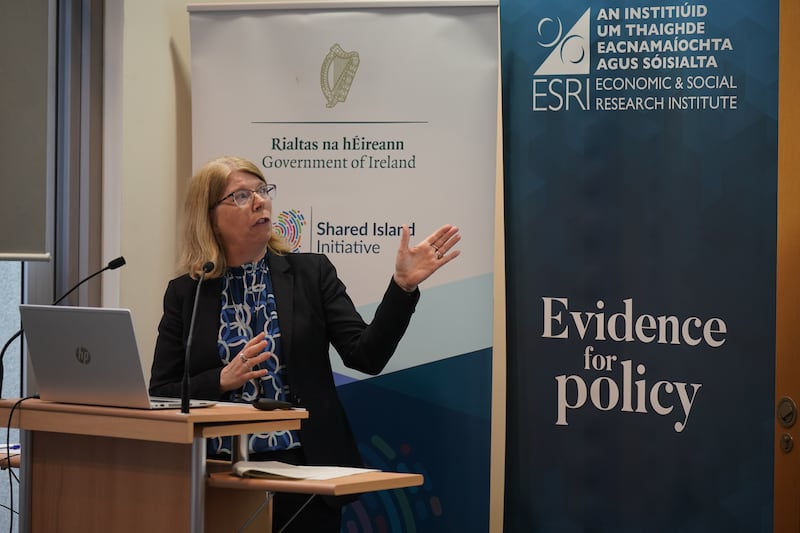A unionist minister raised concerns with statisticians in Northern Ireland that their terminology for employment figures was inadvertently suggesting discrimination was a factor.
Ulster Unionist junior minister Dermot Nesbitt addressed the issue with senior figures in the Northern Ireland Statistics and Research Agency (Nisra) in 2000, according to newly released files from the archives.
Mr Nesbitt was referring to the phraseology employed by Nisra when reporting on the differential in employment rates of Protestants and Catholics.
The then South Down MLA raised particular concern about the term “twice as likely” in respect of Nisra reporting that Catholics are twice as likely to be unemployed as Protestants.

He claimed the term suggested there was inequality at play and highlighted that Sinn Fein politician Conor Murphy, in a recent debate, had made a direct link between the unemployment rates and discrimination.
According to a minute of Mr Nesbitt’s meeting with Nisra on June 16 2000, he “expressed reservations” that such wording from the agency “could lead to misinterpretation and the implication that unemployment is as a result of discrimination”.
The agency agreed to consider the points raised by the minister and come back to him with a “measured response”.
The then chief executive of Nisra, Edgar Jardine, wrote to Mr Nesbitt one month later, setting out the agency’s position.
He suggested Nisra would be open to revising some of its terminology.
Mr Jardine wrote: “By using the term ‘twice as likely’ we were simply trying to state that the unemployment rate of Catholics was twice the Protestant rate; we had not construed our terminology as inferring that Catholic and Protestant job applicants do not have the same chance of getting a job (indeed that the two communities do have similar success rates is confirmed by the analysis of applicants and appointments undertaken by the Equality Commission).
“However, it would not be our intention to use potentially ambiguous language to describe fair employment statistics or to use terms that may give rise to inferences we would not wish to make.
“I do not therefore believe that there is a point of professional or statistical integrity at stake in using alternative terminology when referring to the difference in unemployment rates between Protestants and Catholics.
“This would imply substituting ‘twice as likely’ by stating that ‘the Catholic unemployment rate is twice the Protestant rate’.
“However, as the Minister will be aware, the complexities and subtleties associated with fair employment statistics and (sic – ‘are’) not generally well understood and it is still possible that unwarranted conclusions will be drawn from the revised terminology.”
Mr Jardine said he looked forward to “forthcoming discussions” with the minister on the issue.







